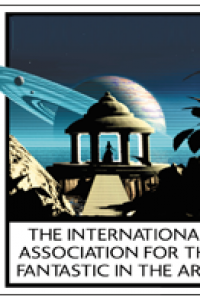Cory Doctorow: A Lever Without a Fulcrum Is Just a Stick

A lever without a fulcrum is just a stick. That is, even the longest, sturdiest lever in the world will not shift even the tiniest object unless you have a fulcrum to balance it on.
Copyright law is billed as a lever creators can use to budge the corporations that bring our work to market. The companies may be large, and they may be powerful, but creators can resist that power and negotiate a good deal for themselves because copyright gives them “the author’s monopoly” (as it was called for centuries): the legal right to authorize or prohibit the reproduction, sale, adaptation, and display of our works.
But the falling revenues of creators – and the rising revenues of entertainment and tech corporations – suggest that all we’ve got is a stick, and we’re getting beaten with it.
I think the problem lies with the conception of “monopoly” as the best way to correct the power differential between creators and corporations.
Over the past 40 years the US and most of the rest of the world ceased to meaningfully enforce antitrust law. Starting with Reagan (and expanded by every US president since), the rules have been loosened to allow companies to engage in anticompetitive conduct, including merging with major rivals, buying nascent competitors to neutralize their future threat, and creating vertical systems that control supply chains, production, retail, parts, service, and so on.
The results have been monopolies, or at least cartels: think of the movie studios dwindling to four major companies, or publishers to five. This isn’t just happening in entertainment, of course – eyewear is down to essentially one company, as is pro wrestling, and beer, liquor, agribusiness, oil, pharma, and other sectors are all dominated by small handfuls of firms.
Once the possible avenues for producing, promoting, distributing, and commercializing creative work have tapered to a handful of narrow alleys with large companies at their entrances, the “author’s monopoly” does virtually nothing to strengthen the hand of creators in their dealings with the companies.
The fact that the company can’t reproduce your book without your permission doesn’t mean much if the only way to get your book into the public’s hands is through that company, or one of a small handful of companies with identical negotiating positions. None of the Big Five publishers will let you keep your ebook rights, and increasingly they won’t let you split your commonwealth and US rights, or retain your audio rights, or even opt out of binding arbitration in your contract, meaning that all disputes you have with them need to be settled not in court, but in a private arbitration system where they pay the judge who decides whether you’ve been wronged by them.
In that monopolistic world, beefing up the author’s monopoly isn’t just useless – it’s counterproductive. You can extend the scope or duration of copyright all you like, but if those new rights are useful to the firms that monopolize the sector, they will simply acquire them as a condition of doing business with them, and add the rights to their arsenals, strengthening their market dominance.
Take the right to control music samples. In the early years of hip hop, sampling was largely a free-for-all. Most hip hop musicians didn’t even consider whether sampling was a copyright violation (no more than Dizzy Gillespie working 16 bars of John Schonberger’s “Whispering” into his solo on “Groovin’ High” was a copyright violation), and if they did, they either assumed it was fair use, or “de minimis” (too trifling for the law to consider).
Over time, labels managed to assert the right to control sampling of their catalogs, through a mix of lawsuits and industry practice. Eventually, it became all but impossible to release a song containing a sample without paying for the right, not least because insurers became so spooked at the thought of a lawsuit that they refused to insure companies unless they cleared their samples.
At first, this represented a windfall for some classic R&B and soul artists who had been forced into singularly unfair deals decades before, as they received a cut of these revenues. But increasingly, the new artists who signed up with labels were expropriated of their future sample revenues as a condition of their record deals. What’s more, these musicians ended up having the costs of the samples they used charged to their accounts, reducing their royalties. The result was that sample-heavy hip hop (of the sort heard on top-grossing albums like Public Enemy’s “It Takes a Nation of Millions to Hold Us Back”) disappeared from the legal marketplace (underground artists like Girl Talk still produce this music, but selling it is legally fraught), and the labels got richer – and they built up strategic reservoirs of sampling rights that future artists would have to pay to use.
Giving more copyright – the right to control sampling – to musicians in the concentrated world of recorded music turned out to be like giving your bullied kid more lunch money. The bullies who were taking his money every day took the extra money too – your kid was still hungry, and the bullies had money left over to pay the principal to look the other way the next time they shook him down.
And yet, we keep giving musicians more lunch money for the labels to take away. Five years ago, a court awarded Marvin Gaye’s heirs $5 million because Robin Thicke, Pharrell Williams, and T.I.’s song “Blurred Lines” was too close to Gaye’s “vibe.” The court didn’t find that the song copied anything from Gaye, but rather, that is was recognizable as the kind of song that Gaye might have composed even if he never did.
The “Blurred Lines” lawsuit created a cottage industry in similar suits, targeting the likes of Katy Perry and Ed Sheeran, and the Recording Industry Association of America (which lobbies for the labels and has historically argued for the most expansive version of copyright imaginable) has started filing briefs in these cases arguing that there’s too much copyright around these days, because their members are parties to these lawsuits over “vibes” and it’s endangering their business.
But while the RIAA’s members are suffering in the short term, it’s easy to see how they’ll adapt in the long term: new record contracts will simply make signing away your “vibe” rights a non-negotiable condition of the deal. This will transfer ownership of entire music genres to the Big Four labels, who may fight amongst themselves over their overlapping claims to them, but, more likely, will cross-license to one another, as they do with samples today. Once anyone recording music in a recognizable genre requires permission from one of the Big Four labels, it will be virtually impossible to record any music without their say-so, and they will wield that power to wring ever-greater concessions from artists. If Congress or the courts gives those musicians more rights, they will simply go into the package of nonnegotiably acquired rights in the standard contracts, further strengthening the labels’ hand over their artists.
Market concentration at every part of the supply chain is conspiring to make life harder for artists. A momentary blip of competition in TV production – thanks to the advent of streaming services – has been checked by massive concentration in the talent agency world. There are now only three major Hollywood talent agencies, and last April, every member of the Writer’s Guild of America fired their Big Three agents in a unified protest over “packaging fees,” through which the agencies accept less money for the writers in exchange for larger fees for themselves. Unsurprisingly, the Big Three agencies are majority-owned by private equity funds, whose reputation for monopolization, unfair labor practices, and profits over sustainability is well earned.
Four studios, three talent agencies, and three major movie theater chains…. Could it get worse? Indeed it could. For one thing, in 2019, the DoJ asked a court to kill the 70-year-old antitrust rule that banned movie studios from buying cinema chains, meaning that we’re one deal away from one of the Big Four studios absorbing one of the Big Three movie theater chains, which would let them do exclusive deals that squeezed out the 600-some independent cinemas left in America, which represent the major forum for exhibitions of independent films.
Add to that the trend towards studios running their own streaming services, with the most obvious example being Disney and its Disney Plus service, integrating the catalog of Fox Studios, with which Disney merged in 2019. Disney no longer licenses its catalog to rivals like Netflix – which generated residual payments to the creators – and now exclusively streams them on Disney Plus, an in-house use that does not require Disney to pay its talent.
Sometimes, the monopolies are aggregated by a distributor instead of an entertainment company, shifting the profits from entertainment companies to tech companies (creators are left out in the cold in either situation, as the new boss is inevitably the same as the old boss). The best example of this is Amazon’s dominance of the audiobook market through its Audible division, which controls 90% or more of the audiobook market.
Audible wraps every book it sells with “Digital Rights Management” (DRM) technology that locks your purchases to Amazon’s platform. Thanks to Section 1201 of the 1998 Digital Millennium Copyright Act (DMCA), it’s a felony to make or sell a tool that allows you to play Audible audiobooks in a competing player or on a competing device.
DRM was sold as a way to protect artists’ interests: back in the late 1990s – and in the decades since – “Digital Rights Management” was used interchangeably with “Copyright Protection” and vendors promised that once DRM was in place, pirates would not be able to remove it, and it would stop them from making unauthorized reproductions, and, should they ever figure out how to defeat it, DMCA 1201 bring the full weight of the law upon them, with its $500,000 fine and 5-year prison sentence for trafficking in DRM-breaking tools.
But defeating DRM (including Audible’s DRM) turns out to be trivial, requiring no more than a single Google search and a few minutes’ tinkering.
The main impact of DRM is to transfer power from entertainment companies to tech companies. Once Random House or Hachette locks up their audiobooks in Amazon’s DRM, they can’t make or distribute a tool to remove that DRM. Amazon has done to the publishers what the publishers do their authors: taken control of the market, then non-negotiably acquired the publishers’ products on terms that guarantees Amazon perpetual domination over that market.
To make things worse, audiobooks are becoming more central to the publishers’ business, rivaling hardcovers for total revenues, and likely to overtake them soon. That means that there will soon be an entire category – as big as hardcovers! – that Amazon can freeze any author or publisher out of on a whim.
So if monopolies are just a stick, how could copyright make a lever?
The trick is to make copyright rules that are designed for unequal, concentrated marketplaces – rights that can’t be taken away through nonnegotiable contracts.
There are rights like this in copyright already. The “reversion right” allows creators to take back their copyrights from publishers, labels, studios, and other corporate entities after 35 years, regardless of what their contracts say. Many established recording artists exercised their reversion rights to claim back their catalogs when iTunes and its rivals came along, and now they enjoy 100% of the revenues from their digital sales. Others used the threat of reversion to demand better deals from their labels.
The original US copyright system required registration to secure a copyright for a relatively short period, and then required the author – not the publisher – to renew that copyright to secure a second term of exclusive rights. Authors whose copyrights were about to lapse could use the threat of inaction to force their publishers into better deals – “either you give me more royalties for that bestseller, or I’ll let it enter the public domain and neither of us gets another dime.”
Another historically powerful tool for securing artists’ rights over corporate rights has been blanket licensing – for example, the licenses permitting live music venues to feature performances of any song, by paying a fee to a collecting society that counts which songs are performed and pays the composers a share of the revenues. Because these licenses are available to all comers, it’s impossible for one chain of night-clubs or bars to seize exclusive rights to the hits of the day, use that to establish itself as the sole place to hear current music, and then put the squeeze on musicians.
Collecting societies are, however, sadly liable to capture by the concentrated labels and music publishers, and are notorious for both spending their members’ money to lobby for the labels, and for dirty bookkeeping practices that cheat independents.
If we’re going to use blanket licensing to help artists, we need a new kind of society: one that is statutorily barred from lobbying; one that does its accounting and sampling in public with online, open data-sets; and one that operates in a legal system that guarantees that a portion (say, 50%) of all the money it collects goes straight to the artists – not the labels, no matter what the contract says. Under such a system, anyone could set up a rival for YouTube or Spotify and access the exact same catalog, making it harder for those companies to become gatekeepers who can squeeze artists in other ways.
Beyond copyright, protecting artists requires changes in labor and contract law. It should be illegal to require binding arbitration in contracts, unless those contracts are between two large, powerful companies (arbitration was designed to mediate expensive disputes between big companies – not between creators and entertainment companies, and certainly not between corporations and their customers).
We need to restore the right to unionize, which, like antitrust, has been eroded by every president since Reagan. Remember that it’s a union that is resisting the dirty deals of the Big Three talent agencies – unions are the best way we know of for workers to join forces to provide real leverage against larger, better-resourced employers.
Copyright can provide leverage to creators, but only if we get away from the idea of monopoly as the creator’s friend. A monopoly isn’t a lever, it’s just a stick – and it’s a stick that corporations use to beat us.
Cory Doctorow is the author of Walkaway, Little Brother, and Information Doesn’t Want to Be Free (among many others); he is the co-owner of Boing Boing, a special consultant to the Electronic Frontier Foundation, a visiting professor of Computer Science at the Open University and an MIT Media Lab Research Affiliate.
All opinions expressed by commentators are solely their own and do not reflect the opinions of Locus.
This article and more like it in the March 2020 issue of Locus.
 While you are here, please take a moment to support Locus with a one-time or recurring donation. We rely on reader donations to keep the magazine and site going, and would like to keep the site paywall free, but WE NEED YOUR FINANCIAL SUPPORT to continue quality coverage of the science fiction and fantasy field.
While you are here, please take a moment to support Locus with a one-time or recurring donation. We rely on reader donations to keep the magazine and site going, and would like to keep the site paywall free, but WE NEED YOUR FINANCIAL SUPPORT to continue quality coverage of the science fiction and fantasy field.








Love the article; just one minor factual correction.
Audible & Amazon only make up about 43% of the market (https://goodereader.com/blog/audiobooks/good-e-reader-global-audiobook-report-for-2019) so it’s not as one sided as it is in the ebook market where Amazon is like 80% of the US market.